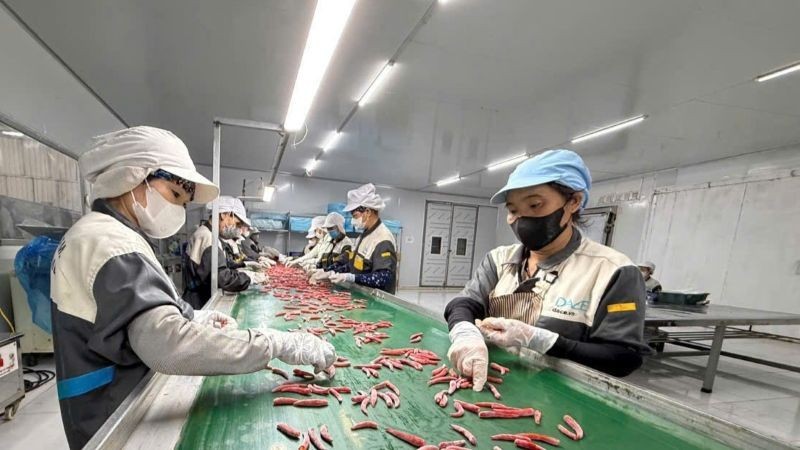
In Resolution No. 68-NQ/TW dated May 4, 2025, the Central Executive Committee clearly identified: The private economy is one of the most important driving forces of the national economy.
This Resolution aims to develop the private economic sector into a pioneering force in science and technology development, innovation and digital transformation - contributing significantly to the successful implementation of the goals of Resolution 57-NQ/TW dated December 22, 2024 on science and technology development, innovation and national digital transformation, as well as other important resolutions of the Party such as Resolution 59-NQ/TW on economic integration in the new situation and Resolution 66-NQ/TW on law making and enforcement in the new era.
Together, these resolutions are forming an important “four pillars” to bring the country into a new, breakthrough stage of development.
By 2024, the private sector will account for 53.4% of total social investment capital, 82.07% of total labor in the economy, contribute 38.6% of total pre-tax profit and 51% of total income generated for employees in the enterprise sector. In particular, this sector has contributed 43% of total GDP and accounted for 57% of GDP growth in 2024 - the largest contribution among economic sectors. On average, in the period 2011-2024, this sector achieved a growth rate of 6.3%/year, higher than the average of the whole economy (5.48%/year).

Modern production must also be associated with green production to meet sustainable development goals.
The above figures firmly affirm the central role and great potential of the private economic sector, and at the same time lay the foundation for elevating its position as the main driving force in realizing Vietnam's goal of rapid and sustainable growth.
Resolution 68-NQ/TW also sets specific targets for 2030 and a vision for 2045, including: striving to have 2 million enterprises operating in the economy (equivalent to 20 enterprises/1,000 people); contributing about 55–58% of GDP and 35–40% of total state budget revenue; creating jobs for 84–85% of the workforce; labor productivity increasing by an average of 8.5–9.5%/year; having at least 20 large private enterprises participating in the global value chain. By 2045, the goal is to have at least 3 million enterprises, the private economy contributing over 60% of GDP and becoming a highly competitive force in the region and globally.
However, compared to the expectation of becoming a pillar of national economic development, the private economic sector still has many shortcomings. Currently, this sector has the lowest business efficiency, science and technology level, labor productivity and labor income among economic sectors. At the same time, this sector is showing signs of "running out of steam" in the development process.
The causes stem from many “bottlenecks” such as: Inadequate awareness of the role of the private economy; institutions and policies that lack fairness and inclusiveness; no effective linkage model between components in the private sector; weak internal capacity and ability to absorb development resources; and limitations in the quality of the business community. These shortcomings need to be clearly identified and promptly resolved with breakthrough solutions to create conditions for the private economy to develop substantially and strongly and contribute significantly to the country's economic recovery and growth in the new period.

Vice President of Hanoi National Economics University, Professor, PhD Nguyen Thanh Hieu.
Faced with that situation, speaking with us, Vice President of the National Economics University in Hanoi, Professor, Dr. Nguyen Thanh Hieu said that the National Economics University (Hanoi) wishes to cooperate with domestic and international experts to create appropriate orientations and policy proposals, accompanying the private economic sector on its journey to become the most important driving force of the national economy.
Sharing with us, Professor, Dr. To Trung Thanh, Head of the Department of Science Management (National Economics University, Hanoi) explained that the causes stem from bottlenecks such as: Insufficient and incorrect awareness of the role of the private economic sector; institutions and policies are not completely fair and lack inclusiveness; there is no effective linkage model between constituent parts in the private sector; internal capacity and access to resources are still weak and limitations in the quality of the entrepreneurial team.

Professor, Dr. To Trung Thanh, National Economics University, Hanoi.
According to Professor, Dr. To Trung Thanh, these bottlenecks need to be clearly identified and promptly removed with breakthrough solutions to create conditions for the private economy to develop substantially, truly being the most important driving force contributing to economic growth in the new period.
Responding to Nhan Dan Newspaper, Dr. Tran Xuan Luong, Deputy Director of the Vietnam Real Estate Market Research and Evaluation Institute, said that removing land bottlenecks for small and medium-sized enterprises is a prerequisite for the successful implementation of Resolution 68/NQ-TW. Switching to post-audit, developing clear standards and regulations, empowering enterprises, streamlining procedures and making information transparent will create a fair and effective business environment, contributing to improving national competitiveness.

Economist, Dr. Tran Xuan Luong.
Dr. Tran Xuan Luong commented that this is one of the bottlenecks and bottlenecks that need to be overcome in the process of developing an effective private economy, so that the private economy can truly be the most important driving force of the economy.
Statistics from the Ministry of Planning and Investment (now the Ministry of Finance) show that small and medium-sized enterprises play a central role in the Vietnamese economy, contributing about 45% of GDP and creating more than 60% of jobs in 2024 alone. Access to land is a prerequisite for this force to expand production scale, innovate technology and participate more deeply in the global value chain. Therefore, it is necessary to shift from pre-inspection to post-inspection, build a system of national standards and regulations on construction, infrastructure, capital and environment, and streamline administrative procedures to reduce time and costs for businesses.
Deputy Director of the National Economics University in Hanoi, Professor, Dr. Nguyen Thanh Hieu affirmed that it is necessary to identify current bottlenecks in the development of the private economic sector, thereby proposing breakthrough solutions to develop this sector into the most important driving force of the economy, aiming to contribute to rapid and sustainable growth.
Source: https://baolaocai.vn/de-kinh-te-tu-nhan-tro-thanh-dong-luc-quan-trong-nhat-cua-nen-kinh-te-post880603.html



![[Photo] Prime Minister Pham Minh Chinh chairs meeting of National Steering Committee on International Integration](https://vphoto.vietnam.vn/thumb/1200x675/vietnam/resource/IMAGE/2025/8/26/9d34a506f9fb42ac90a48179fc89abb3)
![[Photo] Many people eagerly await the preliminary review despite heavy rain](https://vphoto.vietnam.vn/thumb/1200x675/vietnam/resource/IMAGE/2025/8/27/4dc782c65c1244b196890448bafa9b69)



![[Photo] Brilliant red of the exhibition 95 years of the Party Flag lighting the way before the opening](https://vphoto.vietnam.vn/thumb/1200x675/vietnam/resource/IMAGE/2025/8/27/e19d957d17f649648ca14ce6cc4d8dd4)


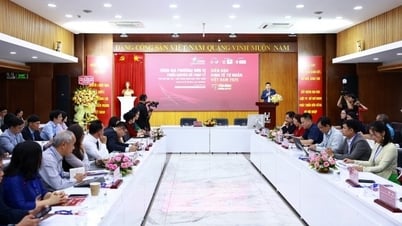



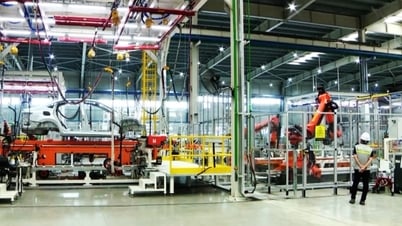








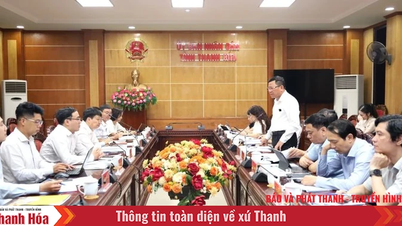














































![[Photo] General Secretary To Lam attends Meeting with generations of National Assembly deputies](https://vphoto.vietnam.vn/thumb/402x226/vietnam/resource/IMAGE/2025/8/27/a79fc06e4aa744c9a4b7fa7dfef8a266)


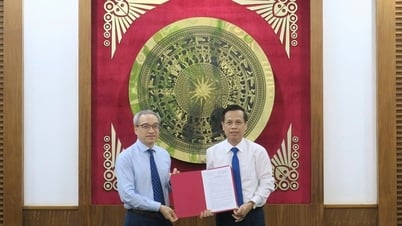











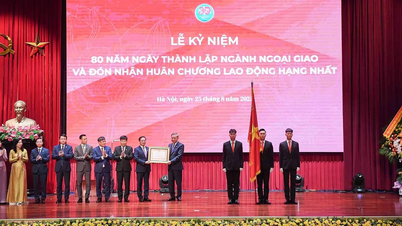















Comment (0)